Why Do Some Games Create an Unforgettable Impression?
In a 2016 article, writers on Time.com talked about how games have become an integral part of our culture. What truly hits home is their remark that Mortal Kombat’s growling “Finish Him!” can be [under the right circumstances] as evocative as a Beatles tune [for some]. And that completely captures the theme of this piece.

Certain games have become household names or larger-than-life personalities. They have captured the love and affection of millions throughout the world. Players have memories associated with certain games that rival those like one’s beautiful high school days worth reminiscing. With a key distinction – the game can be relived to some degree anytime.
Pokémon games – why did they spawn a whole franchise of merchandise, TV shows, and more? More notably, why do people have such a strong bonding with games such as Mario, Call of Duty, GTA, Final Fantasy, Assassin’s Creed, Zelda, Tomb Raider, Tom Clancy games, The Elder Scrolls, or God of War?
Witcher 3 – why was it more than just a game? It was the prerequisite for the Netflix show. Not the books, which have a much more captivating grip on any audience, but the game. Even today you will find players slashing a forktail in Fyresdal or game hardware reviewers including Witcher 3 when they discuss benchmarks.
Many have discussed why this happens. And some have articulated it fairly enough 1.
Witcher 1 and Witcher 2 did not cut it in terms of popularity and sales. But with the third installment, CDPR must have done something right.
In this article, let’s dissect what makes a game have that sacred “emotional connection” for most of the people who play them. That little “something right”, which hooks an entire generation so much that gamers continually go back to relive their favorite characters, moments, battles, and more. It is almost like an addiction. There is a dopamine hit awaiting in those familiar lands.
Defining emotional connection
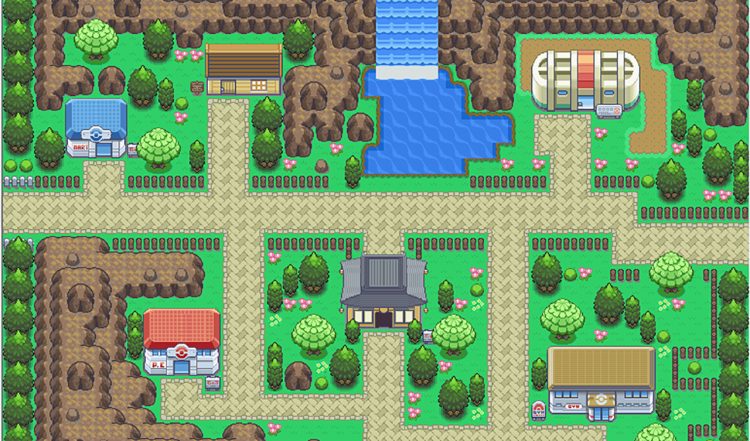
This is not about any and every game. As a form of art, games have the power to influence and stir from deep within – much like animation, where principles such as exaggeration and breaking away from reality can be used, as tools, to hit the audience harder with a particular message.
Consequently, it is hard to find anyone who has played a fair bit of games to not have an emotional connection with at least one game. It could be a cherished childhood getaway, for example. But that is not the premise of this piece.
This piece will discuss games that have built a strong emotional connection with a majority of gamers (regardless of when commercial success finally came to them).
That is to say, there can exist a world and game more powerful and emotionally superior to Pokémon. But Pokémon is what spawned a whole franchise that rivals Disney, not this game X. Let’s not compare qualities or the power of just about any game to stimulate our hearts – rather let’s focus on games that have become household names, and remain relevant even today for some reason.
Games end up having long-lasting impressions on players. A good way to determine this connection is how many times you have played the game (barring esports like Dota 2, which can be considered practice and not an emotional throwback).
Key factors instrumental to the coveted emotional connection that any game developer dreams about:
- Replayability
- Nostalgia and generational leaps
- Innovation and a stroke of genius
- Soundtrack
- Hero’s journey and the three-act structure
- Attention to detail and going the extra mile
- Adventure
- Refining the gamer experience
Replayability
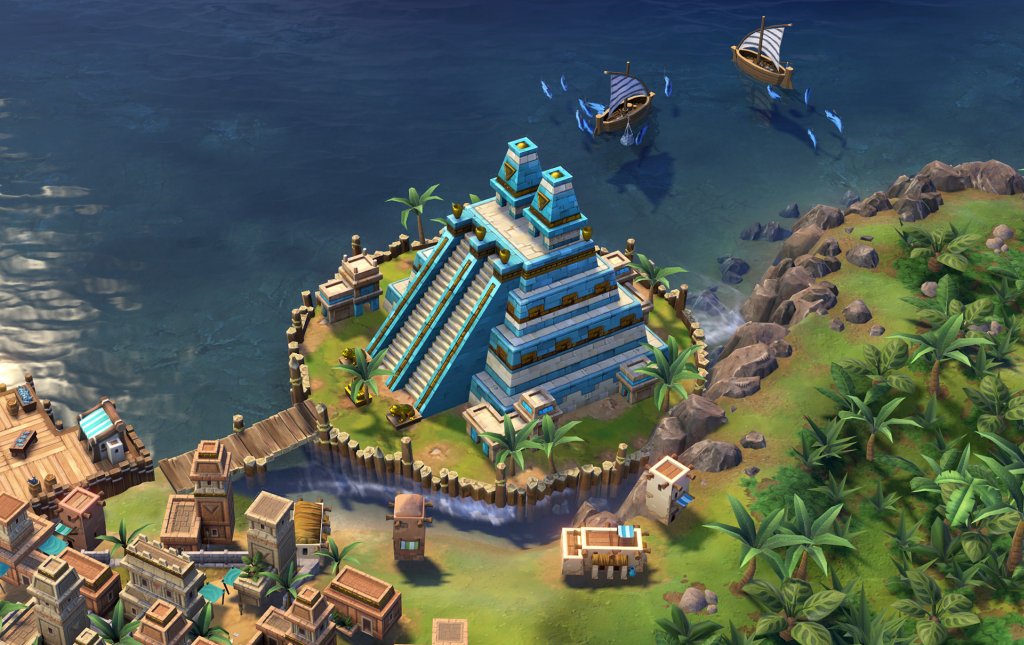
A game’s replay value (let’s call it replayability) is determined by a bunch of stuff. Unlocking extra features, rewarding subsequent playthroughs, secrets, or alternate endings all make replaying a game much better rather than just increasing the difficulty level of monsters.
If a gamer happens to come across a sweet change in the world during their second playthrough because of a mission finished in the previous playthrough, then it is much more rewarding and memorable than the wild dogs now taking 500 sword slashes to die rather than 5. That is just … lazy.
Some games have an upper hand here because they have a nature of never really “finishing”. Civilization 6, Skyrim, Cities: Skylines, Minecraft, some Sid Meier games, etc. are good examples.
So, before anything else, a game has to be replayable or must have some playback value in a way that subsequent playthroughs will reward the player in some form.
Good mechanics include entirely new discoveries, alternate endings, a branched storyline, elaborate character customizations or modding, randomization, and so on.
To reinvest precious hours into a game finished already is a commitment. And a game that can make gamers commit this much has already taken the first step to developing an emotional connection with them.
Why do gamers come back to a game? That is precisely what the first ingredient is. It is so lovable and impactful that you would rather be replaying it despite so many other games being available to you.
Nostalgia and generational leaps
The psychological ramifications of video game nostalgia are a completely different topic for another day. A piece on The Psychology of Video Games 2 notes that:
A lot of its psychological weight is due to how nostalgia relates to our identity and maintaining congruity between our current and past concept of ourselves.
And nostalgia can, therefore, make a game much more powerful than intended by the game developer.
Humans associate games or certain aspects of a game with nostalgia. And how does an entire generation of gamers, both casual and die-hard, develop the same brand of nostalgia collectively?
Whenever a generational leap occurs, such as a new piece of hardware or an entirely new graphical utility being leveraged, a whole generation of gamers leaps up for it.
This has happened several times. What this means is that a large community builds nostalgia towards that game title, given it does everything else right (in terms of story, characters, and game mechanics, for example).
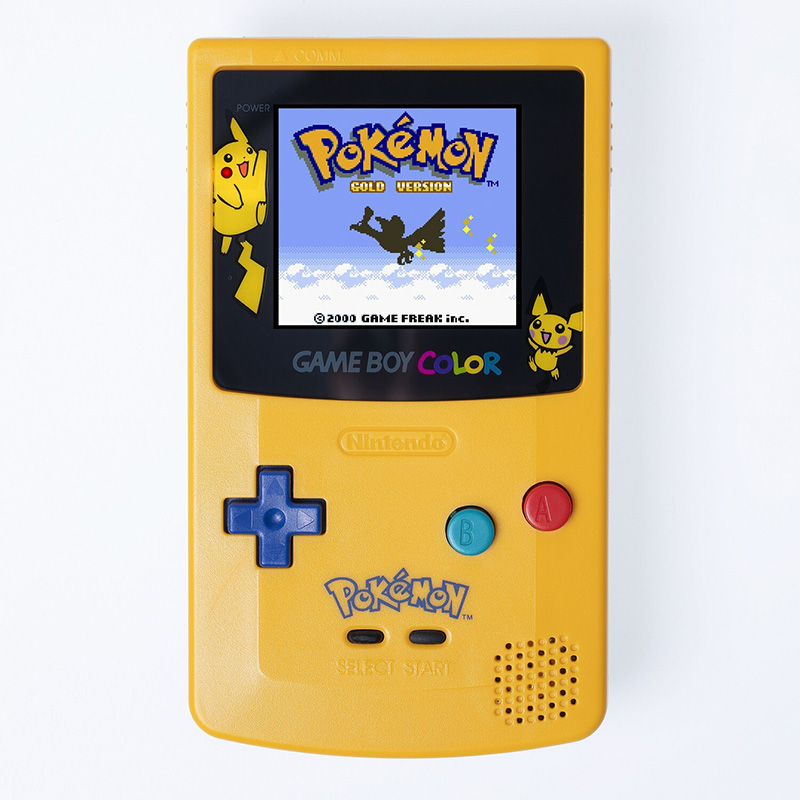
Any new breakthrough, such as ray tracing for a more recent example or the transformation of game consoles to handheld devices with the Game Boy Color, is likely to be met with much fanfare. All the games designed for that platform or technology, therefore, see a huge jump in player counts. And that is how an entire generation becomes glued to a specific game title, which is bewildering when you think about it.
Today, games can come in remastered versions to leverage more updated technologies, but a true generational leap is still by far one of the biggest reasons why some games become so sensational and others of the same time, which might be technically superior, simply fail to create long-term memories.
It would be remiss to not talk about the statistically superior advantage of new hardware or console technology when talking about leaps, relative to software improvements.
Exclusive games, quality peripherals, and ergonomics – everything goes into building the perfect platform to game on. The 90s, for example, were full of so many different consoles, but the Sony PlayStation (1994) truly came out on the top in a big way 3. As such, it propelled many games into popularity, games that are still making new installments today.
This hardware and game-specific nostalgia that is shared across an entire generation are key for any game to become sensational. This also ensures that there is an active community that loves to talk about the game and share tips, among other things.
Innovation and a stroke of genius
Innovation and a stroke of genius both apply more fully to installments in franchises that already have a solid base, though not necessarily a classic or legendary tag.
Call of Duty 4: Modern Warfare (2007) was the fourth game of the franchise. It completely reimagined the way modern shooters work. A progression system, perk bonuses, polished controls, and a few other nifty innovations that only a dedicated team of developers who care about and know about their players can imagine went towards improving the emotional bond players already had with the Call of Duty.
Innovating is not hard when you already have a franchise and millions of players. More holistic innovation comes from indie studios which revolutionizes the way a genre is treated.
It is interesting to remember that butchering a series is perhaps remarkably easier than innovating things that will bring in more love. The moment a game studio stops caring about its players and paying attention to the experience, it effectively kills the series and sometimes.
It is not always true, however, that innovation of this proportion only happens in franchises. Sometimes, it is also precisely what spawns a memorable franchise.
Ensemble Studios revolutionized real-time strategy gaming by introducing a game, Age of Empires, that was based on actual history (of course, not truly “accurate”, but you get the point) as compared to fantasy or sci-fi that other RTS games were based on back then.
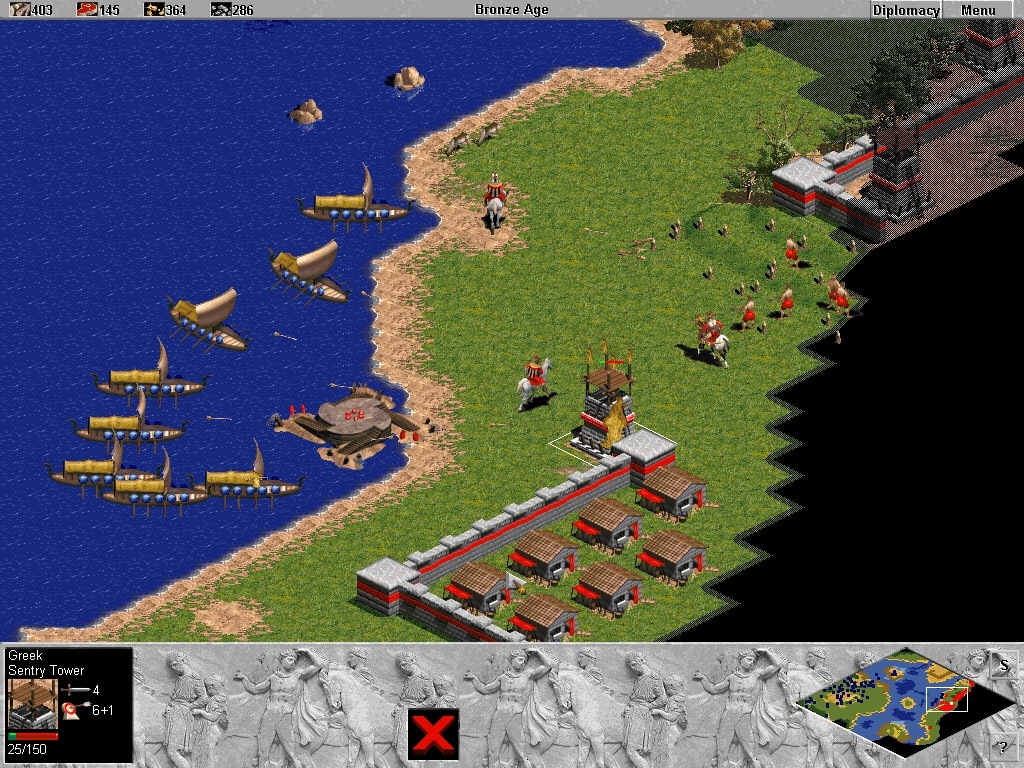
Critics might have been quick to point out that it was a hushed marriage between World of Warcraft and Civilization, but it was so much more.
Age of Empires‘ Intelligent AI and a different take (though it was inspired by Civilization’s art) reshaped the RTS genre, and consequently, Age of Empires is today a game that millions have been influenced deeply by, of course, only after disregarding people who do not like the genre to start with, because RTS is one of the least-popular game genres.
Soundtrack
One of the more subtle cues that subconsciously influence how we feel about a game is its soundtrack. It is really one of the most important things that decide the level of immersion someone would have during a playthrough.
Witcher 3’s soundtrack was composed by hiring Polish folk singers and musical talents for a Slavic feel 4, as the game’s roots are in Poland (the lore, the game studio, and Andrzej Sapkowski’s original books are all Polish). It is an album by Marcin Przybyłowicz, Mikołaj Stroiński, and Percival.
Any good game knows how to bring out the expected emotions through music and sounds. In many ways, composing the perfect soundtrack for a game is much like composing the score for a film.
Think John Williams (Harry Potter; Schindler’s List; Star Wars; ET), Hans Zimmer (Gladiator; Inception; Interstellar; Tenet), Ennio Morricone (The Hateful Eight; The Good, The Bad, The Ugly), Max Steiner (Casablanca; Gone with the Wind), James Horner (Titanic; Avatar; Braveheart), and so on.
These people know precisely how to bring out the emotions in the audience. Such people exist in all media, for example, Ramin Djawadi made Game of Thrones and Westworld completely different worlds just with his music.
And there is no reason why games should not have the same level of mastery over their soundtrack to amplify emotions.
The one handicap games have is that they are user-controlled and not a preset narrative, consequently making it hard to guide emotions perfectly. For example, one might end up slaying monsters in Witcher 3 for countless hours. The composer has to be prepared for that. The music should not become dull over time, neither can the music ever end. That is where music composers have it much harder than TV or film music composers.
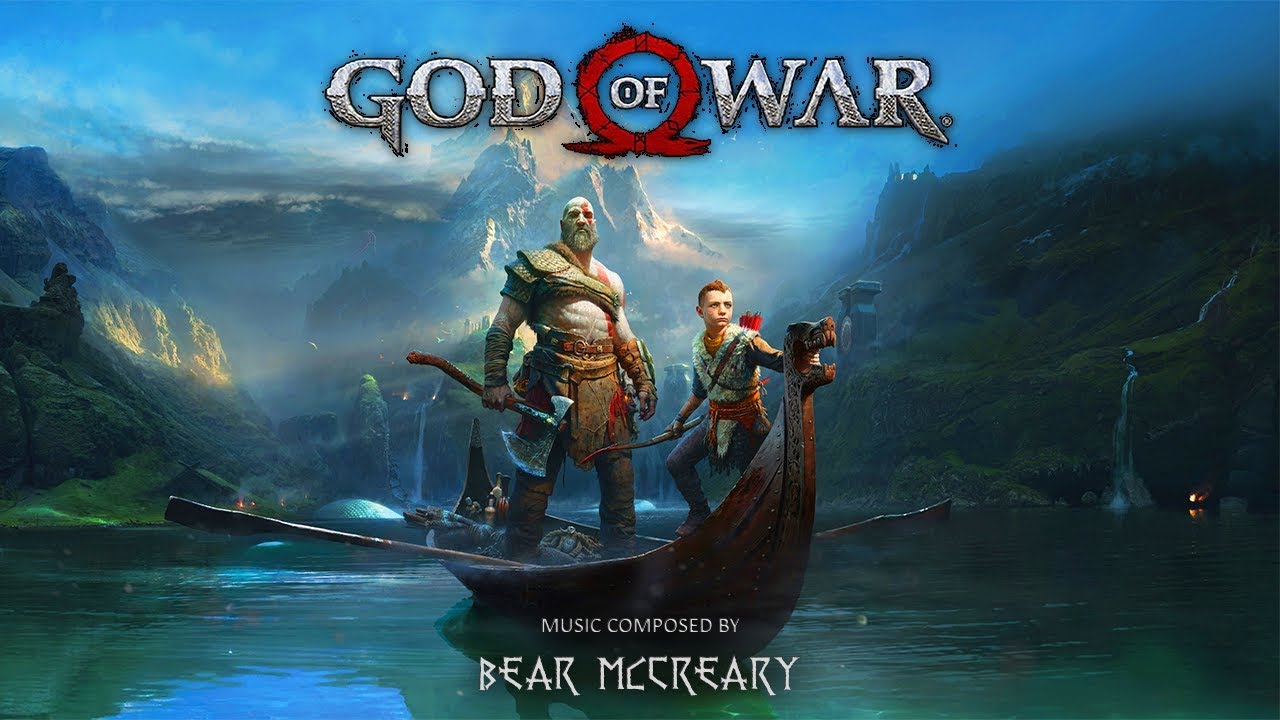
The thrill, excitement, fear, happiness, or action can be felt in the soundtrack of Skyrim, Zelda games, God of War series, Final Fantasy games, and more recent games as well such as DOOM Eternal and Red Dead Redemption 2.
Music is the one thing that transcends human communication and understanding. Whether it is the medieval instruments in electrifying battle hymns of Witcher 3 or the cosmic tunes played behind Super Mario Galaxy – a good soundtrack adds a touch of authenticity.
Hero’s journey and the three-act structure

Just like in theaters, novels, and films, a story in a game is likely to follow a three-act formula 5 or be about a hero’s journey 6 (a 12-stage narrative which can be dumbed down in the case of a game to just a few or fleshed out to even infinite stages).
Most games that have become sensations over the last few decades have followed one of the two, if not both.
Let’s take the example of Pokémon here. The Japanese Red and Green installments of Pokémon were meant for Game Boy and came out in 1996-99. Reprogrammed as Red and Blue for international release, they allowed a player to embark on a hero’s journey.
It was a voyage, an epic, refashioned into a creature-collection RPG.
If a game can pull off a proper three-act structure or a hero’s journey that is enticing, it will win hearts almost immediately. Games that focus on worldbuilding or are open-world RPGs have the upper hand here as other genres cannot really have a similarly detailed story.
Attention to detail and going the extra mile
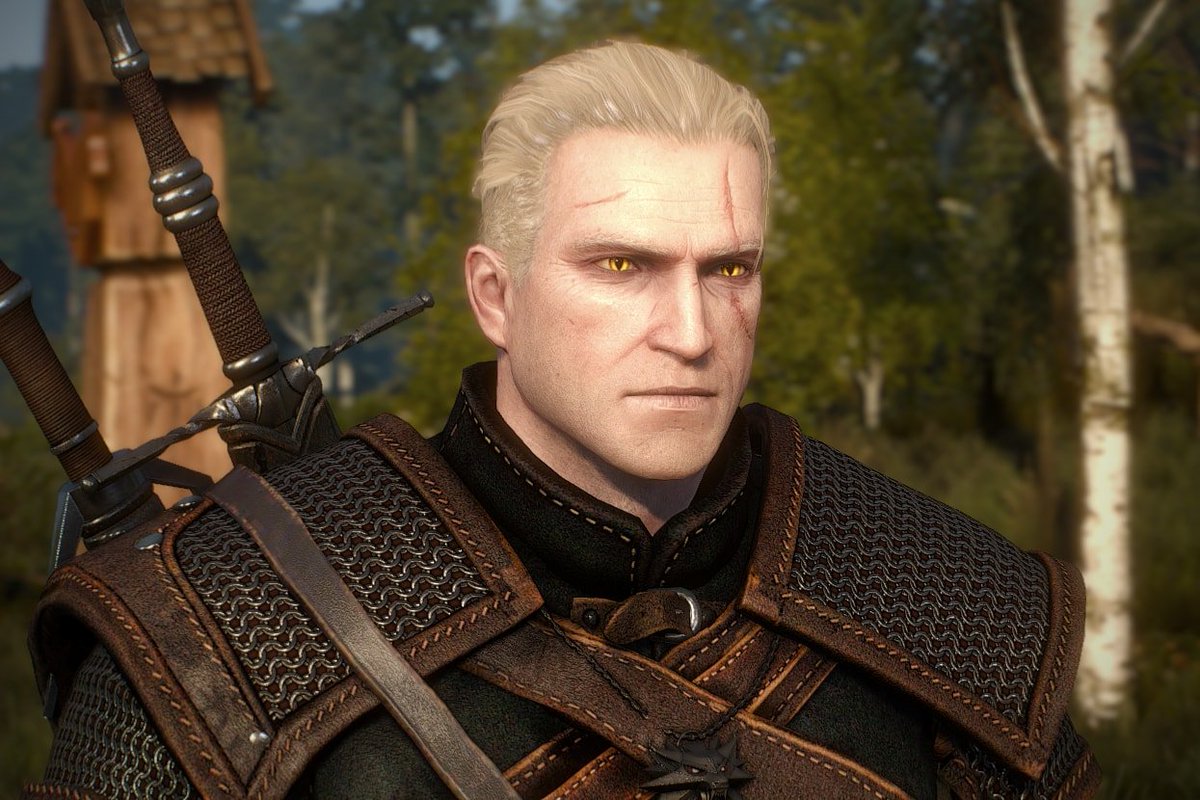
In Witcher 3, Geralt’s beard grows as you play through the game. Drivers close their windows during rain in GTA San Andreas. Reznov in Call of Duty: World at War exclaims surprisingly when you get a kill without a scope. And so on.
There are countless examples of game developers including nifty details in their games, most of which will go unnoticed by a vast majority of the gamers. But that is insignificant. The point of these little details is not to get noticed.
If these details were not there, nobody would miss them. But the moment you take them all out from a game, you have a much duller game.
Attention to detail and the same towards the NPCs, ambient creatures, and the grunts, only goes on to show the sheer dedication a game developer has for its game. However, only after you have a loyal base of gamers can you expect such things to bear fruits.
When a game franchise is still new or the first installment of a lineage, developers do not really have time to put in all the hard work. They just need an operation copy of the game that focuses on the USP.
But over time, studios and developers become increasingly involved with their own creations and they want the players to feel the same way. As such, it is only natural to pay attention to the smallest of the details, or at least as far as feasible in terms of economy, performance, and time.
Some studios are better at attention to detail than others. Rockstar’s GTA franchise is a great example. Here are examples testament to Rockstar’s commendable attentiont to detail:
- In Vice City, more objects are added to the Vercetti Estate interior and rollerskates work much poorly on the sand.
- In San Andreas, your driving stat influences CJ’s driving animations
- In GTA 3, businesses open and close at specific times and there is always a rainbow after the rain.
And so on.
Going the extra mile is surely one of the most painstaking things for a game studio.
For example, doors are a pain for game developers. Player interaction with doors has always been a nightmare. Go through this video from Vox to appreciate the amount of work The Last of Us Part 2 has put into doors (and why doors in game development are extremely difficult, so much that most games just make a two-way opening door that the character interacts with for the sake of it, which is conclusively illogical no matter how you think about it):
Making a realistic player-door interaction and a proper door that does not defy common sense – that is one of the examples of going the extra mile.
But not every studio has the time or the budget to go the extra mile and fine-tune physics, mechanics, and the world in general. A random crate used to hide a pesky corner. A ledge you cannot jump over even when it is shorter than you. All this is fairly commonplace, used as a compromise.
Functionality and logic are not hard to grasp. Sometimes, they are just hard to develop in a game. Game studios often compromise due to looming deadlines and a shortage of capital.
Sometimes, solutions do not even exist, or solutions to some problems would require programming that would bloat the game a lot, unless a mathematically talented game programmer comes along, something that happened during the development of Quake III (the fast inverse square root algorithm – YouTube explainer by Nemean | Medium article by Shaw).
All in all, visual appeal, graphical fidelity, and level of detail are sufficient to make a game immersive. It is a little like this – every asset in a game is hollow. Including a stone. That is not logical. You go unexpectedly close or find yourself in a weird angle and you can see its hollowness.
But it is also the best way out to optimize the game because not everyone is running the latest hardware with unlimited resources or the $6,000 BFGPU (and that is not just a figure of speech).
Game engines also have their limitations. If making a game significantly more realistic and by doing so, going the extra mile means that the game will need much larger texture files when most people are gaming on 8GB VRAM, it is simply counterintuitive. Compromises are imminent.
It is not always easy to aim for perfection. More often than not, the main vision-holder of the game might not even be directly involved with the development and might not have foreseen some technical hurdles in their overall vision.
As such, games are likely to leave a few things out and not be truly perfect. The ideal, perfect game today, given the graphical fidelity we expect now, will need heaps of processor and GPU prowess to just run at 60 FPS, which is increasingly becoming too low for most high-end gamers.
Adventure
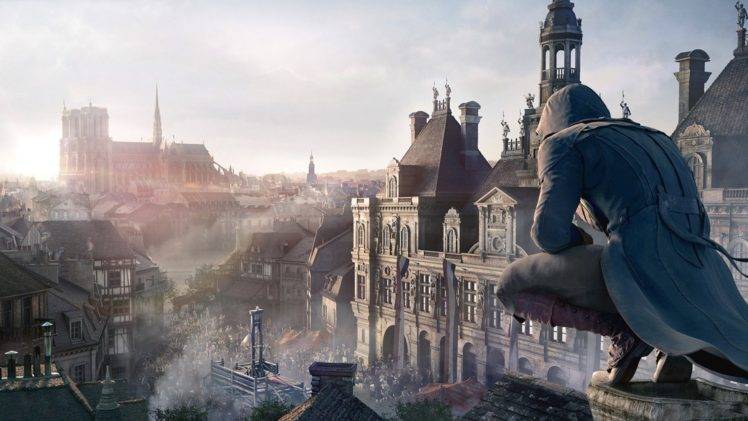
In a beautifully argued article on The Artifice 7, Piper CJ writes:
“The fully-realized universes of Tolkien’s Lord of the Rings, Jordan’s Wheel of Time, and now Ruthfuss’s Kingkiller Chronicles don’t have to be literature-specific. The same care and development goes in to the creation of the games we love with the unique added benefit of being able to stay in that world, even after the story has finished.”
A driving force behind why this happens is the adventure quotient.
Whereas the hero’s journey and the three-act structure are both specific to story-based and predominantly single-player games, the modern equivalent of those formulas is perhaps transforming the idea of adventure into something that can be enjoyed individually and as a group. In both cases, it is an adventure that the developers are trying to imply.
Adventure is single-handedly the most important part of most popular game titles. Being able to travel, feel, and adventure as a character or with a character is a driving force behind the majority of the love people have for games.
Game franchises such as Call of Duty and Battlefield have built their emotional connections with players even in multiplayer scenarios, though it is arguable how instrumental the single-player mode was.
On the other hand, franchises like Assassin’s Creed and Tomb Raider have it easier. Being single-player, they can truly perfect the individual gamer’s adventure and curate a narrative that gives them goosebumps, as they have complete control over how the narrative proceeds and how the adventure is chronicled.
Refining the gamer experience
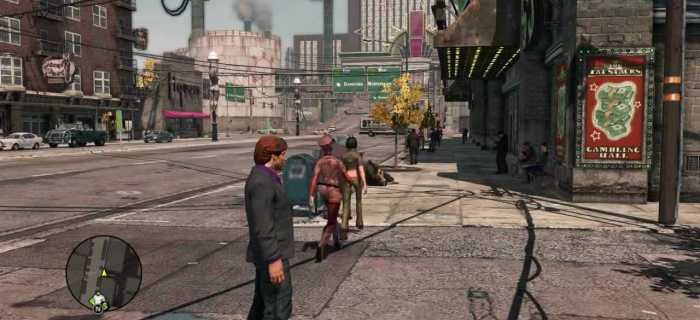
Gauging what the gamer needs is not hard today with the social media, forums, and communities we have.
Saints Row: The Third provided gamers with an autosave feature that did not penalize people (for example, those playing Skyrim) for forgetting to save manually. Allowing gamers to skip cutscenes is also a good idea, but not if your cutscenes are short and crisp, which actually build up the story much better (Metal Gear Solid 4: Guns of the Patriots).
Similarly, there are a bunch of things that some studios get just right. In fact, pausing cutscenes in Castlevania: Lords of Shadow is a lifesaver if you happen to get a call or have to rush to accept your pizza delivery. Gamers do not want to lose any moment, but let us say if you happen to get an important call when playing GTA IV, you either have to skip it altogether so you can pause or let it play without paying attention – both being bad compromises.
Games that get things right more often than not improve the gamer experience.
But the list is inexhaustive. Where do you draw the line? For example, to some, even captions are important but not all games can afford to have them. It is really an act of balancing and choosing the best experiences to incorporate while leaving everything else.
Wrapping up
Surely many will be unhappy with the lists used here. For example, much more captivating than Tomb Raider was Hellblade for me, and I would prefer Ori and the Blind Forest over most of the games exampled here.
But as mentioned, we are keeping things strictly emotionally deep and commercially successful or wildly popular. In broad strokes terms, this means all the games that have become a sensation, a household name almost, and have sold the most copies in the world.
But some classics are left out due to specific reasons.
Games that have become irrelevant
Tetris is a classic. But it fails to build an emotional connection if someone plays it today. In contrast, if someone plays The Legend of Zelda: Ocarina of Time today, either on Nintendo 64 or through an emulator, there is a good chance they will be hooked and explore more Zelda titles.
Relevance is important. Not all games can stay relevant. Some game categories have been completely phased out. And those categories will not create emotional connections anymore.
This means players experiencing Tetris, Pac-Man, Oregon Trail, or The Legend of Zelda (1986 NES Classic) for the first time in the last decade would not feel the same way. People playing Blizzard’s 2004 technological breakthrough and adrenaline rollercoaster that they smartly veiled as World of Warcraft, however, can still work wonders.
The same goes for titles like Quake, Doom, Counter-Strike, Half-Life, Halo, Diablo, StarCraft, or Street Fighter.
Online games
Online games make things overly competitive (which is the whole point). For example, GTA is a historic franchise. But GTA V Online is not the same thing. When things get competitive, they lose touch with the gamer on a deeper level. This touch is maintained throughout a single-player story-based game like Assassin’s Creed.
But online multiplayers are the future of gaming, are not they? What can a game studio do in this case?
Well, one option is to go the Call of Duty route. You load everything into the same game from an elaborate campaign to a battle royale and from a large-scale PVP mode to massacring zombies. And now, players have to think twice before even starting a new game because they have run out of disk space (mostly console gamers).
Alternatively, you can choose. Choosing one specialization between single-player and multiplayer is much better.
Yes, the world needs its fair share of Fortnite, TF2, Dota 2, League of Legends, PUBG, Overwatch, and Counter-Strike but the world also needs games that come in seasons and not patches, because only these can create deep emotional bonds with the players.
Which other franchise do you think falls in this category?
Works Cited
- Vargas, Santiago. “Why do game sites still use Witcher 3 for benchmarks?” ↩
- Madigan, Jamie. “The Psychology of Video Game Nostalgia“ ↩
- Sawyer, Logan. “10 Best Consoles of the 90s“ ↩
- Vohra, Atharv. “A Relatively Formal Analysis on the Sounds of The Witcher 3: Wild Hunt“. ↩
- Wikipedia. “Three-act structure“ ↩
- Wikipedia. “Hero’s journey“ ↩
- CJ, Piper. “Emotionally Investing in Games and Their Characters“. ↩
What do you think? Leave a comment.











So what is your most memorable game?
Pathologic and its sequel. What’s so interesting about them is that they aren’t games that are designed to be fun, it’s the exact opposite. They’re designed to be absolutely miserable to play; unrewarding, stressful, tedious. You’re not a video game protagonist playing it, where you can do everything at your own pace and there’ll always be some kind of reward or payoff for it; you’re very limited in your time, resources, and concern for keeping yourself alive and have to seriously weigh every decision you make and whether doing something or not is a worthwhile use of those limits. It’s an exercise in futility and powerlessness. The writing and setting is all very uncanny too, like it feels real and fake at the same time and doesn’t really fit into any clearly defined time or place, and everything feels confusing and just… off.
Subnautica. The lore, the world, the concept, I just love it.
A game called luminary goonzu.. I’ve been looking for a game like this forever. It was a fantastic grindy Chinese MMO. Awesome gatcha boxes with super cool mounts, leveling experience was very unique, dungeons were fantastic, great upgrade system, the community was the BEST. Completely player driven economy, towns were also player driven and guild owned. It was a cool ass game
Arkham City. Walking out into the city after the villains main plan is unveiled. The scene of the city combined with Alfred telling Bruce Wayne that Batman must always do what is best for the people of the city rather than what his emotions tell him to do.
The World Ends With You.
In all honesty, this game came at the perfect point in my life where I was starting to believe that all I truly needed in the world was myself and I just needed to use myself to get better. This game kicked me in the rear and told me I was being a little shit and had me crying tears of joy by the end.
This might sound weird, but Adventure forward 2 on roblox. It is such an amazing game, it makes you emotional. The music is so fitting and so nostalgic at the same time. The game play is terrific, the final boss fight to the amazing storyline, there is nothing this game doesn’t have.
No Man Skies.
Skyrim. The music and scenery put me in a serenity I find difficult to emulate elsewhere in life. It rests my soul.
Pharaoh’s Tomb… Loved the hell out of that DOS game.
The Zero Escape Trilogy:
9 Hours, 9 Persons, 9 Doors (999) Virtue’s Last Reward (VLR) Zero Time Dilemma (ZTD)
Those three games are amazing and challenge everything from how you perceive the world to your morals. I highly recommend playing them.
Portal has that place in my heart
Haven’t played many games, if you’re willing to extend it to a more broad “experienced” then I would say Doki Doki Literature Club.
If not, I would say Takeshi’s Challenge. It was so innovative for it’s time, yet manages to be a complete crapshoot the entire way. Screw you Takeshi Kitano.
One of my favourites is stanley parable such a good narrative and philosophical game where the twists are strong enough to break your neck lol
Minecraft.
I think it all boils down to emotion, and how the game makes you feel during and after playing(maybe even before as well, for those highly anticipated ones). Whether you felt joy, awe, wonder, powerful, scared, angry, sympathetic — I think they all make a game memorable but not necessarily good or fun.
That and the execution.
A game can succeed by delivering just the right mix at the right time, more often than not.
I might be shallow, but I am a sucker for scenery and setting. This is why the beauty of Skyrim captured me right away, even though parts of the game were flawed. LoZ: Wind Waker and Mirror’s Edge stick out for me for similiar reasons, because of their amazing art design.
Skyrim was just so beautiful to look at; a quiet and beautiful game, until you are mauled by a bear.
Love this. There are so many ways for a game to be memorable to different people, and it’s fun to see that shown a lot here.
The greatest thing about games like Wind Waker and Mirror’s edge are that they will always be appealing even when the average graphics of games move pass them.
If you enjoyed Skyrim’s landscapes, I’m sure you would also enjoy Oblivion’s as well as Shadow of the Colossus’.
What we need is good story-telling and a unique and immersive atmosphere (BioShock) backed up by gameplay. So basically, a memorable game is just a really good game. However, if I had to choose any of those 3 factors I would choose the atmosphere.
I definitely second atmosphere. One of the arguments I would always make for games like metro 2033 that make it memorable more than any other aspect of the game (at least for me) and what carries it so far is just the feel of the setting and it’s mood and the overall atmosphere of the game. Sure the whole nuclear winter has been done but each game has its own twist and different feel to it that it makes each game even within the same subgenere (stalker, fallout, metro, wasteland, etc.) feel widely different aside from the gameplay differences.
I completely agree with this. One game I just titter about still is final fantasy 7, which has been almost cool to hate on nowadays. But the atmosphere created by the dark and gloomy setting and moving music is, in my opinion, second to none. It just gets me in to the perfect mood for the experience the game wants me to have.
Agree. One of the most striking examples I can think of in terms of atmosphere would be the 16-bit game Out Of This World. It was a long time ago so it might not hold up to today’s standards, but it really made you feel as though you were alone on this very dangerous alien planet. Slowly you begin to learn more about what’s going on, but even with no dialogue (in text, even) you feel connections to the ‘people’ you meet and the plight they’re in.
A game doesn’t have to have good story-telling to be immersive. Look at minecraft, it has no story at all and yet it’s an amazing, memorable game. I do agree about atmosphere being important.
That’s a good point, though Minecraft as a game is difficult to evaluate for the very reasons which make it so excellent: each player can make the decision to experience it exactly how they wish, by setting their own goals and doing what is fun to them. In a way though, this is a more pure form of storytelling than even the more structured games like Bioshock, it’s simply the player’s story instead of the writer’s.
Minecraft does have the atmosphere. And the look and feel of the game are unlike anything else, even if you ignore the building and mining aspects.
So true. One of my favourite games of all times is STALKER. It has its quirks, on release it had a ton of bugs but it had such a rich atmosphere that it would suck me into The Zone (where the game takes place).
Voice acting is famously bad in that game but I quickly stop caring after a hard day of hunting mutants on my own out there and coming into a safe haven with some broken-English-speaking pals around a campfire, while someone plays a bit of acoustic guitar.
The games that are most memorable for me, are not just the ones that were fun; They also had to draw me in with their story and have a resounding emotional impact.
Definitely; a week or so ago I played a game called To The Moon. It’s made in RPG maker and there is not much gameplay beyond finding a few items and solving a small puzzle between screens. However, despite the lack of deep gameplay and 16 bit RPG looks (though well-drawn for its style), it will stick with me for a while because of the tear-jerking story and the gorgeous music.
Atmosphere can surprisingly carry games along on it’s own. Games like Amnesia hardly score that much in the gameplay department – they have very little to use in the first place except the escape sequences -, nor do they really convey that rich a story. But their atmosphere is terrifying.
I’m actually playing through bioshock for the first time (I’m at the bee hive place) and it’s been incredible. I don’t want it to end!
To me the games that make the biggest impression on people are the ones that are the trendsetters in a genre; these games are not necessarily the first in a genre but are new or definitive in some way. Instances IMO are Minecraft in complete Sandbox gaming, the Mass Effect Trilogy in Sci-Fi Epics, Civilization in world Strategy games, Heavy Rain in open choice storylines and DOTA in that genre of Online Co-operative games. I expect people will disagree on some of these as we all buy play,and enjoy, different games. Also factoring in heavily will be what games people we know play as more frequently discussed games will stick in the mind more. For me games that are particularly immersive, i.e. TES games, Mass Effect, and Metro 2033, are more memorable, but that is due to the amount of time i have played them.
I agree that a lot of the trend setters are memorable, but I’ll disagree to the notion that “Sci-Fi Epic” is a gaming genre. It’s a gaming setting. I also think while Mass Effect was a huge influence in modern sci-fi epics in gaming I still think Halo is more iconic.
Also I agree that Minecraft had a huge impact on sandbox games because it was so different from the typical sandbox type games like Shenmue, Dead Rising, and Rockstar titles.
Good point on how longer games are more memorable.
Of course I also think iconic scenes or little things (River City Ransom : “BARF!”) make a game memorable. So the game doesn’t necessarily need to be influential.
Blasting article. There are many ways a game can be memorable, but the ones that are memorable to me tend to have these things in common:
– A central feeling, supported by every other aspect of the game – this is what hits you at the credits. A great game will leave you thinking, “WOW… well what do I do now?” And then you spend a couple weeks thinking about it because you don’t want to move on yet 😛
– Interesting level design. Dark Souls is amazing when it comes to this.
– Having at least one character I can relate to, or that I want to discover more about. For me, this is the difference between skipping thru the dialogue, and reading every word. In KOTOR (my first RPG), I had two party members I loved talking to and I took them on all the missions. Having that team was great. In Dark Souls, I’m more focused on the tortured journey of the protagonist.
– MUSIC and sound design.
– An added note – one thing I found to be very rewarding has been distancing myself from the protagonist, coming up with a personality for them, and seeing what they do. But that might just be me, because when I play “as myself”, I get really perfectionist. But anyways, I like games that let me do that.
Speaking of characters, I think that most memorable games have a strong character. And I’m not just talking about what characters reveal through dialogue. I’m talking about the characters that exude every bit of their being through the way they walk talk and look.
Phoenix Wright, one of my favorite characters from the past 10 years, did this VERY well. You got a sense of who he was through EVERYTHING he did.
16-bit Sonic the Hedgehog was another one: remember how if you left him alone long enough, he would tap his foot waiting for you to come back? Without any dialogue whatsoever, you’re given this caricature of this impatient hedgehog whose sole purpose is to run.
Or how about The Legend of Zelda: Wind Waker’s iteration of Ganondorf? All of a sudden we get a more subtle character, balancing between desire and regret.
Memorable characters are CRUCIAL to a memorable experience, in my opinion.
Definitely. I love picking up subtle things about game characters. It makes them seem so much more real.
I miss how much I’d get wrapped up in Age of Empires 2. I still play it occasionally but when I was a boy and it was brand new, man…that game was something else.
For a modern game to be great, I think the developers have to do (or at least have) a few things:
1) Make memorable characters. I recently finished Uncharted 3 and was upset at first that Elena wasn’t in the game until the very end. I mean Naughty Dog made players fall in love with her over the course of the series but she was barely in the game. The few cut scenes and levels she was in made me excited and upset at the same time. I thought for sure that her and Drake would finally be together after the second game and they were but only for a brief period of time until they had their own problems. So far though few other games have made me fall in love with a character as much as her (other than Cortana, Jack Marsden, Max Payne, and Niko Bellic).
2) The story. There has to be something there. I would rather play a game that has a deep story behind it rather than playing a game that merely has fighting shit for no reason other than them attacking me.
3) The gameplay. Without good (sometimes great) game play how do you play the game?
Typically the games I find most memorable possess all of the things I just listed. But then there are fames like Darksouls and Minecraft that don’t meet any of them besides the game play, but they’re so memorable in their own way.
But with classic games, they have their own reasons that make them memorable. Maybe it’s just me being nostalgic when I remember playing Starfox and Links Awakening back on my SNES or Mario 64 and Ocarina of Time on my N64. But I will never forget those games.
You know what’s interesting? I found that Naughty Dog’s characters from its previous series, Crash Bandicoot and Jak & Daxter, were more memorable than any of the characters they’ve made this generation.
They were certainly more interesting, anyway.
My cousin feels the same way, but for me the characters from Uncharted are memorable because of how realistic the seem. They actually seem human in the sense that they’re fallible. I personally prefer playing someone like Nathan Drake or Max Payne over playing the perfect soldier or human.
An enjoyable article. I realize numerous games cannot be addressed but I was thinking of games going back to the 1950s (usually board games) which I often find on ebay or in antique stores. Sometimes games remind us of childhood memories and that makes them memorable.
A memorable game has got to keep it’s momentum until the end. All too often have I played a game with a huge, blockbuster opening, only to regress to stale, simple gameplay for the rest of the game. In general, putting all the explosion budget into the first twenty minutes is only going to hurt the memorability of your game.
I think the best pacing and presentation I’ve seen in a game to date was in Metal Gear Solid 4. [Spoilers] MGS4 had its problems with lengthy dialogue, I know, but the build up to the final confrontation between Snake and Liquid was perfectly shadowed by Snake’s unavoidable and impending demise. I think for anyone who had played through the MGS series since its playstation debut, the rising action and subsequent climax to the series was one of the most memorable moments in gaming history.
The story, atmosphere, and the music. What makes it more memorable for me.
The first Homeworld is a great example of the kind of game that I will never forget: Its sense of urgency, the totally alien world in which you as the player are thrown (especially the missions in the Nebula…those missions were AWESOME, and the explanation of what you had just encountered was absolutely amazing). When you encounter the Bentusi for the first time… It is games like this that I will remember always.
I was just a kid the first time I played Homeworld, and I still remember when you meet the Bentusi. I remember Cataclysm better, was a bit older when I did finally pick it up. When you see them the second time in Cataclysm, (Or is it the third? Jeez, I should play that again…) and that big ol’ ship of theirs gets destroyed by the weird alien whatever it was called… I remember thinking. “Holy crap… How the heck am I supposed to beat something that the freaking Bentusi couldn’t stop? Are you freakin’ kidding me?!”
The Homeworld games did such a fantastic job with the narration and dialogue, imo. Have the entire collection all lined up on my shelf right now, and have for years now.
Many of the major names from the ‘80s have a replayability value.
Great topic! I definitely have a couple online games that made an impression on me, that have since closed and I still miss. Hidden Chronicles is the big one (from Zynga, formerly on Facebook).
There are plenty of video games that have left a lasting impression on me. However, if I could name only one, that would definitely be the Animal Crossing franchise. As a child, I had gone through some rough experiences, but playing “Animal Crossing: A New Leaf” helped me cope. To me, it was a whole other world, one where I could escape to and temporarily forget about my worries. Here, I had friends, I had a happy home, and most of all, I had fun. Though my adulthood is significantly less stressful than my childhood, I still find myself returning to my Animal Crossing islands to let go of my worries for a period.
Now that is one nice topic I’d never get tired of reading and agreeing with, because video games have been a part of my life since childhood. While I used to see them as a form of escapism from reality, it quickly turned deeper than I expected.
Pokemon and Super Mario actually started this passion for video games, but I have to admit that the Legend of Zelda franchise is my Bible. My treasure. My favorite has got to be The Wind Waker, as its story was just THAT original and amazing! I find myself going back to replay this game because it’s my favorite, though I believe Breath of the Wild is going to take that spot very soon.
I love the list of factors here! Skyrim is one of those unforgettable games for me, especially for the soundtrack and replayability factors. The awesome landscapes along with the soundtrack make it such a great experience, so that simply walking through and exploring the world is fun. And of course it’s so replayable with all the possible characters and factions you can try out. Everyone I’ve ever showed it to has enjoyed it, even if they didn’t play video games.
I completely agree with you, Skyrim forever holds a special place in my heart; I’ll never forget attempting to fight a giant, dragon or simply break into a shop for the first time.
If only Bethesda could hurry along with creating the next Elder Scrolls, I’ve been itching to play it since 2011!
I think You definitely hit the nail on the head with replayability! Thinking back to all my favorite games, they have this factor like crazy!
Great essay! I think that you really got onto something as far as replayability goes! Many of the games that I have enjoyed thoroughly in the recent past have been games that I have engraved into my mind through repetition.
Awesome insight!
I wholeheartedly agree with all of your points. I can think of an example of a game that has made an impact on me that fits into every criterion that you listed. I grew up on Pokemon and even though I don’t avidly play it anymore (for me, it seemed like the quality took a massive hit around Black and White), but the series will ALWAYS have a place in my heart because I have so many happy memories of playing Pokemon Silver on my GameBoy. I also agree that a game’s soundtrack can give it a lasting impact. If I had to choose a favorite game off the top of my head, it would probably be Saints Row 2, not only because of the story, but because of the amazing soundtrack that made me feel like I was back in the early 2000’s.
Great aeticle!
I really enjoyed this article. As you said, I don’t personally find many of the games on this list unforgettable classics. I’ve never played many of them, and there are plenty of indie games that I would term ‘unforgettable’.
Another thing that can make games unforgettable, I find, is community. There are games that I have a lot of fond memories of because I played them with my closest friends and family. Obviously this fits into your point about nostalgia though.
I just got into video because of the pandemic, so I don’t really have “classics” because I’ve only played a handful of games. I haven’t finished it yet, but Persona 5 kinda hits all your categories for me! It was a really slow start, and the beginning of new arcs were basically 15 mins worth of cut scene, but its attention to detail and immersion is such a draw for me. Want for cohesive narrative aside, I like the balancing act of a story the game wants to get me through, but also feeling like a part of the world who’s playing it my own unique way. Player agency is top tier for me.
Persona 5 is a great game. However, JRPGs are not for everyone especially with their focus on episodic narratives, pre-established characters, and very long introductions. On the other hand, gamers who do love storylines more than the action will definitely find Persona 5 to be one of the most emotionally-stimulating games.
In my opinion, Defining and relating emotional connection with game player is main reason to create unforgettable connection and impression on the mind of game player.
Personally, I do play a lot of games but only some games make me wants to play again. It lost the interest in a game once I had played it for a long period of time. So, I consider replayability to be very important for a game.
A while ago I would have said that for a game to be memorable it had to be something I’d never seen before, something unlike anything in any media like movies, books, comics, etc. But that’s not true for me anymore, and I know this because I see the same settings, tropes, archetypes etc in games as I do in other media. But it’s all about the execution and how you feel while playing. Do you feel comfortable, at home, in a game like Stardew Valley (the likes of which we’ve seen, and which takes elements from many other games)? Do you feel awed, scared and thrilled by the gothic, horrifying world of Bloodborne that brings to life Lovecraft’s worst nightmares? Do you feel love and heartbreak for the characters of the Last of Us, in a post-apocalyptic setting we’ve seen a thousand times? These games create an impression because of how much care was taken in making them. So, I suppose, simply, some games aren’t memorable, because the care isn’t there to as great a degree as those standouts.
Absolutely reminds me of the food from Escape From Tarkov. The little details of the food (like condiments) and the smooth motion of the character eating the food really takes that extra mile. That attention to detail makes the game stand out from the numerous shooting war games. I agree with GTA being greatly detailed. I feel like the creators of the game really put a lot of effort into the game to make it feel realistic.